 Courtney Hamilton Griffin
Courtney Hamilton GriffinDirector of Operational Support
Southern Valley Fruit & Vegetable, Inc.
Norman Park, Georgia
Courtney Hamilton Griffin is the Director of Operational Support at Southern Valley Fruit and Vegetables, Inc., a rural, multi-integrated growing, packing, and shipping facility in South Georgia. Southern Valley supports year-round agricultural operations. Recognizing the critical importance of accessible healthcare for migrant and seasonal workers, including the H-2A workers her company employs, Courtney has an intrinsic desire to improve the overall health status of the migrant and seasonal agricultural workers in our rural communities and has become an invaluable advocate for ensuring these workers have access to affordable healthcare services.
Serving as a local business owner in a rural community allows me to be involved in many situations related to rural health. We have over 1,000 farmworkers, and I enjoy advocating for them. For us as a rural business, having healthy farmworkers means a healthy business and more vegetables to the grocery store shelves.
One of my most rewarding experiences has been the Summer Project, where over 1,100 farmworkers, including 300 from our farm, received care in 2024. Bringing medical students to a rural area is super cool. Local churches and businesses contribute by providing meals for the medical students, faculty and staff, while farming businesses ensure their workers receive care and education. We have participated in the Summer Project since 1997, and it is always special to see medical students, local businesses and community members come together to provide essential services to the farmworkers. I look forward to seeing it continue to grow and help many more farmworkers.
During the COVID-19 pandemic, ensuring our workers were vaccinated posed a significant challenge, especially as many couldn’t cross the border without their vaccine cards. However, by working with our local Rural Health Clinic, we addressed the issue efficiently. The clinic staff came onsite to our packing sheds and barracks, providing on-site vaccinations and educating workers about the importance of the vaccine.
Without the “Power of Rural,” we would not have food to eat. Rural communities feed America. We grow cotton, peanuts, corn, fruits, and vegetables. We work hard every day to send food to cities.
Absolutely! Our farming organization benefits from our State Office of Rural Health (SORH) throughout the year! Without our SORH programs and grants, we wouldn’t have our local clinics to treat our amazing farmworkers.
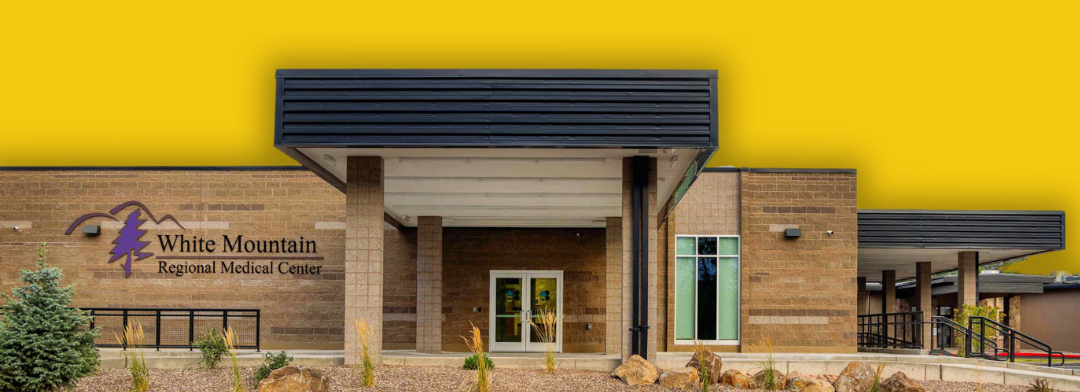 White Mountain Regional Medical Center
White Mountain Regional Medical Center White Mountain Regional Medical Center (WMRMC) has been chosen for its remarkable efforts to enhance emergency medical services in Apache County. Most notably, they completed a renovation project for a state-of-the-art Emergency Department, working with Arizona Senators Mark Kelly and Kyrsten Sinema to obtain a $3 million appropriation through congressionally directed spending. This $11 million project cements WMRMC’s role as a vital fixture in the community, delivering services that reflect their core values of compassion, excellence, and integrity.
The underlying difference WMRMC brings to our community is that we are immersed within it. Our rural setting allows us to provide a level of personalized care to community members that larger facilities often can’t match.
We’ve tackled recruitment and retention challenges by focusing on strategies that shape our organizational culture, such as successful onboarding, clear behavioral standards, and equipping preceptors with evidence-based tools to bring new staff into the community of practice. We have also created employment and growth opportunities for rural residents. Through this innovative approach, we have participated in the growth of many new professionals – from CNAs becoming RNs to registration and environmental service staff transitioning into roles such as RNs, Sleep Technicians and Senior Staff Accountants.
A strong collaboration with the White Mountain Communities Special Health Care District has allowed WMRMC to maintain 24-hour physician coverage and our Trauma and Pediatric designations. This collaboration ensures we continue to provide excellent care for these high-risk populations in our rural community.
The “Power of Rural” means doing more with less. We identify, maximize, and retain the talent and resources that we have, uniting staff through strategic initiatives and shared goals and purposes to provide the best outcomes for the rural communities we serve. It’s about tapping into community strength to make what seems impossible possible.
Our partnership with the Arizona Center for Rural Health is imperative to the survival of our facility. We have partnered with them for trauma resources that support our trauma designation and ultimately improve the care delivered at the bedside for trauma patients in underserved areas. They have been advocates and collaborators for our facility by providing us with resources, education, and, at times, funding that leads to growth within our facility.
 Matthew Cooper, PsyD, MSCP
Matthew Cooper, PsyD, MSCP Training Director
Iowa Psychological Association
West Des Moines, Iowa
Dr. Matthew Cooper is a pivotal figure in Iowa’s mental health landscape, serving as a Licensed Clinical Psychologist and Training Director at the Iowa Psychological Association (IPA). Under his leadership, the predoctoral internship and postdoctoral residency training programs have been enhanced to focus on underserved Iowans. These initiatives aim to bolster Iowa’s mental health resources by retaining psychologists within the state. Since the program’s inception, more than 65 trainees have served over 15,000 Iowans, with nearly 80% of trainees remaining in the state. A collaboration with the National Psychology Training Consortium has also led to the creation of eight new internship positions and a new training region in Iowa.
Iowa has many counties with few or no mental health providers. In my role, I have expanded our psychology training program to provide doctoral psychology students and graduates with the necessary training for licensure while simultaneously providing quality mental health services to underserved Iowans. Recognizing the need for more predoctoral internships and postdoctoral residencies in Iowa, we have partnered with various sites across the state to create diverse training opportunities, helping to expand access to critical mental health services, including specialized services like psychological assessments. The availability of telehealth has further expanded access to mental health treatment options in rural areas.
One of the most rewarding aspects of my work has been seeing the immediate and longstanding changes in the lives of Iowans through expanding mental health coverage. Another accomplishment has been the ability to create a predoctoral training consortium. This critical training year is required by all doctoral training programs in psychology that are accredited by the American Psychological Association (APA). By having this consortium, these partnered sites will be able to train future psychologists, many of whom we hope will end up licensed in Iowa. In turn, these trainees and hopefully future licensed psychologists can move to rural areas to provide services and/or be able to provide services to rural Iowa through alternative mediums like telehealth.
In 2018, we partnered with a training site in Clay County, a rural area with few licensed psychologists. Within two years, the partner site supervised trainees and increased the number of skilled psychology providers in that county by 15%.
Rural communities tend to have an overall belief that they are there to help one another, which encourages resilience and strengthens the overall health of those communities.
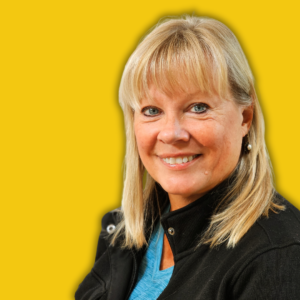 Nancy Murphy, RN
Nancy Murphy, RN Clinical Quality Public Reporting Coordinator
Bridgton and Rumford Hospitals
Central Maine Healthcare
Bridgton, Maine
Nancy Murphy, RN, has been a practicing nurse for over 42 years, spending more than 30 years providing bedside care before transitioning to her current role. She was selected for her unwavering commitment and dedication to quality improvement within her hospital and across all rural hospitals in Maine, where she has instilled confidence in healthcare quality. Nancy has been a beacon of leadership and mentorship within the rural hospital quality group and has significantly contributed to the success of the Maine Flex Network. Additionally, Nancy established the Southern Maine Nurse Honor Guard to honor and recognize those who have devoted their lives to nursing and supporting their peers.
I collaborate with multiple departments through process improvement projects, data collection, and evidence-based practice implementation to improve our quality of care. My organization is involved in many different ventures, such as health equity initiatives and education, food insecurity programs, recruitment efforts, and community needs assessment forums, to ensure that we are meeting the needs of our communities.
Rural health is both challenging and rewarding. It requires doing more with less at times, being creative, and ‘stepping out of the box’ to achieve goals. Collaboration and teamwork are essential. I am extremely proud to have played a role in vaccinating the community during COVID-19. We held clinics at our hospital, and to meet the needs of those who could not come to us, we went to assisted living facilities and even to a local restaurant when workers could not get away. Clinics were open late to reach those coming home after work and on the weekends as well. This could not have been done without the support of administration, coworkers and teamwork.
We held a viewing of Being Mortal by Dr. Atul Gawande at the local movie theater, followed by a panel discussion with local primary care providers about palliative and hospice care. The goal was to open a discussion about care options, offer support, and provide information on available services. The sessions were well attended, and excellent questions were asked.
I find value in being able to work where I live. I am a part of my small community both professionally and personally, and folks know they can stop me in the grocery store and always call on me.
We have collaborated with our State Office of Rural Health for educational opportunities, support on improvement projects, and available resources.
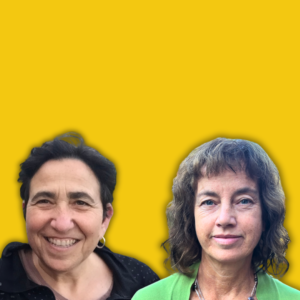 Monica Moran, MSW
Monica Moran, MSW
Manager of Domestic Violence Project, Pioneer Valley Planning Commission
Amy Waldman, MSW
Organizational Consultant, Solo Practitioner
Monica Moran and Amy Waldman have championed the prevention and response to domestic violence in rural Massachusetts for over two decades. Recent federal and state funding shifts threatened support for local coordination of this critical work, prompting them to devise a plan to ensure rural communities receive the necessary assistance to facilitate local domestic violence taskforces. Through diverse funding sources and collaboration with community partners, they established the Massachusetts Rural Network to End Domestic Violence (RNEDV). This community-designed network strengthens domestic violence task forces across rural Massachusetts by connecting them, allowing for mutual support, shared learning, and advocacy for rural needs statewide. Their innovative approach has not only sustained support for the six regions that have historically engaged in this work but has also expanded services to new rural areas.
Our work focuses on engaging rural communities in system change and community-driven solutions to prevent and respond to domestic violence, ensuring that services for adult survivors and their families are accessible in rural communities. The task forces we collaborate with include rural residents in creating and implementing community-based solutions, aligning with the philosophy of ‘nothing about us without us.’ These task forces are comprised of community members, domestic violence survivors, and local agency representatives, who together develop strategies to make their communities safer. For example, outreach campaigns like Hilltown Voices use the voices, words and images of local community members sharing their messages about domestic violence and relationship health. Rural school prevention campaigns, led by teens, use student-made videos and writings to engage their peers.
For years, the Southern Hilltown Domestic Violence Task Force supported monthly meetings of local and state police (at their request) to coordinate efforts and identify high-risk cases. This effort saved at least one life when the State Police had information about a dangerous incident, but only local police knew how to reach the home on a remote dirt road. The effort also improved police response and connected countless survivors to needed services.
During the pandemic, when it was nearly impossible for survivors to leave abusive situations, task forces and stakeholders collaborated to launch A Call for Change, the nation’s first hotline aimed at individuals who want to change their abusive behaviors and learn to be safe in their intimate relationships.
The SORH has been incredible, especially in helping us launch the RNEDV. They have been critical thought partners, have supported us financially, and have helped us make valuable connections with other community stakeholders. We are indebted to their support.
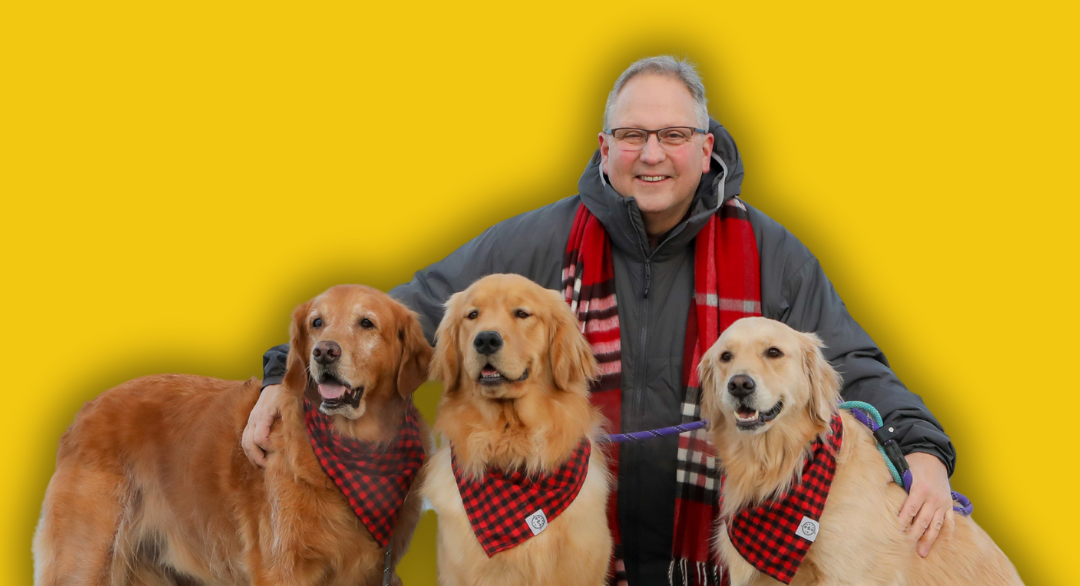 Mark Logsdon
Mark Logsdon Community Health Worker
Logan Health – Whitefish
Columbia Falls, Montana
Mark Logsdon is a dedicated Community Health Worker (CHW) who has made an extraordinary impact on his rural community. His commitment to improving the health and well-being of those around him is truly inspiring. As a key figure in the Food Rx Program, Mark works tirelessly to ensure that community members have access to nutritious food. He understands the vital connection between proper nutrition and mental and behavioral health, going above and beyond to address these interrelated needs. Mark is deeply committed to delivering mental and behavioral health services, particularly in underserved communities. His compassionate approach creates a safe, supportive environment where individuals facing mental health challenges can seek help and receive the care they need. Beyond direct care, Mark advocates for systemic change. His efforts to raise awareness about mental and behavioral health have been instrumental in reducing stigma and improving access to essential resources throughout the community.
One of the most rewarding moments in my work was helping a developmentally challenged individual who was living in dire conditions after the passing of his parents/caretakers. Through numerous letters, emails, and telephone calls, I got him into a much better living situation.
The Food Rx Program, a partnership between Logan Health and Land to Hand, focuses on food-insecure clients with chronic health conditions. Operating through several health clinics in the Flathead Valley, the program helps patients and families break down barriers by providing fruits and vegetables each week at no cost. This has led to improved health outcomes and greater confidence in cooking and storing vegetables while also profoundly impacting the mental and emotional well-being of countless individuals.
I want to be involved with individuals who truly make a difference in areas with very few resources.
To make a difference, to provide needed resources, to be a voice, and to advocate for individuals in rural communities.
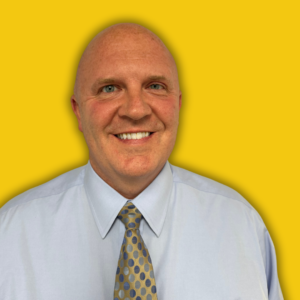 Richard William Katschke, MD
Richard William Katschke, MD Chief Medical Officer
Grover C. Dils Medical Center
Caliente, Nevada
For over two decades, Dr. Richard W. Katschke has been a pillar of his community in Caliente, Nevada—a desert frontier town of 1,330 people. Since 2013, Dr. Katschke has mentored 37 students during their clinical rotations. To put this into perspective, he has spent 37 out of the last 129 months with students, devoting nearly 30% of his total working time to teaching—all on a voluntary basis and without compensation. Dr. Katschke is the type of physician you want setting an example for future healthcare providers. His exemplary bedside manner, patience, and thoughtful guidance during rural rotations have earned him the admiration of students and colleagues alike. One former student shared, “I really enjoyed my time with Dr. Katschke in Caliente. The rapport he has with his patients is some of the best I’ve seen throughout medical school. The entire town puts its trust in him—and rightfully so.”
As the Chief Medical Officer of Grover C. Dils Medical Center, I oversee two rural medical clinics, the hospital, the emergency room, and the long-term care center. In addition to patient care, I supervise four physician assistants and serve as the collaborating physician for a nurse practitioner. I also act as the local EMS medical director and as the physician for the Caliente Youth Center.
I love caring for the people of Lincoln County and playing a role in their medical and social care. My reward mostly comes from expanding and providing medical services to wonderful people who need local access to healthcare. For the past 21 years, we’ve diligently worked to develop and provide a healthcare institution that has the trust and confidence of our rural people.
The idea that I could play a small role in the health and care of the families and community where I grew up has been inspiration enough. From my days in college, I wanted to come back home and provide medical care for people I have known and loved since my youth.
There is great strength in living in rural Nevada among people who are so devoted to community, country, God, and family. There is a strong sense of unity and love in our community. Our community is a place of safety, peace, and protection for our children and families.
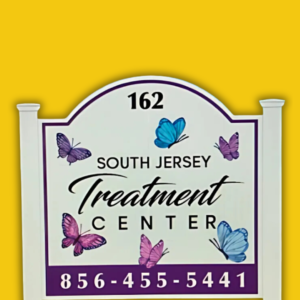 South Jersey Drug Treatment Center
South Jersey Drug Treatment CenterThe South Jersey Drug Treatment Center has been recognized for its unwavering dedication and profound impact on the community. They offer a comprehensive range of addiction and mental health services, helping individuals in rural southern New Jersey on their path to recovery from substance abuse. Their efforts to promote and expand access to these critical services in rural areas are truly inspiring. Whether providing services to communities in need, responding to public health crises, or participating in statewide initiatives, the South Jersey Drug Treatment Center exemplifies the qualities of a true Community Star.
We provide comprehensive care for individuals with Opioid Use Disorders by utilizing medication-assisted treatment (MAT) integrated with a holistic behavioral health approach to promote overall wellness. In our rural community, we address the stigma often associated with addiction treatment, countering the “Not in My Backyard” (NIMBY) mentality. Following the Drug Enforcement Administration’s (DEA) recommendation, we operate outside regular business hours, offering our clients a safe and secure environment that ensures their anonymity. Additionally, our expansion of services was granted through state licensure so that we could provide co-occurring services. This positive impact supports our “No Wrong Door” system of care.
We implemented the co-occurring model of care by having our clients evaluated for mental health issues by a Psychiatric Advanced Practice Registered Nurse (APRN). This created a “one-stop-shop” model where clients can receive comprehensive, integrated care under one roof.
We participated in a community-wide partnership to provide grief support and services in response to the tragic rise of fentanyl overdose deaths in the community. Within our organization, we continue MAT for incarcerated individuals struggling with addiction, ensuring continuity of care and support during their recovery.
The organizational “Power of Rural” MAT services allow credentialed staff members to be employed in their communities without traveling to the big cities.
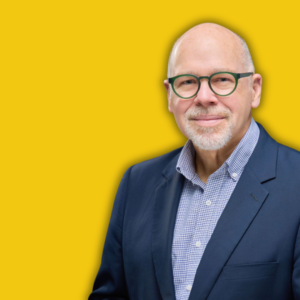 William Massengill
William MassengillFormer CEO
Benson Area Medical Center/Benson Health
Benson, North Carolina
William W. Massengill Jr., a lifelong resident of Johnston County, recently retired as CEO of Benson Health after decades of dedicated community leadership. William was pivotal in bringing together crucial partners during the COVID-19 pandemic, demonstrating his commitment to community well-being. Recognized as Citizen of the Year and having served as Benson’s Mayor for ten years, his leadership has left a lasting impact on both his community and rural health care.
Benson Health, a CMS-designated Rural Health Clinic, has served our community since 1979 and has also been a training ground for future healthcare providers. We partner with MedServe, which helps identify college graduates who desire to become healthcare providers and place them in rural and underserved communities for two years. After coming through Benson Health, these future healthcare providers have a real knowledge of the impact of quality rural healthcare and have the potential to have a long-term impact on the healthcare of rural and underserved people.
One of the most rewarding experiences was our COVID-19 response. We were the first rural health center in the state to administer vaccines, partnering with volunteers, the local health department, and the Campbell University School of Pharmacy to vaccinate hundreds. We also worked with our local hospital, UNC Health Johnston, to provide monoclonal antibodies via a mobile outreach bus and set up a drive-up respiratory clinic that operated for over two years.
Benson has partnered with the NC Farmworker Project to provide a weekly farmworker clinic, offering care for chronic conditions and urgent needs. When the pandemic made transportation unsafe, we secured funding from a partner organization to take the clinic directly to farmworker sites, delivering care in a tent environment with protective measures. This ensured farm workers could receive care safely. We believe that his approach most likely kept farm workers from utilizing an already overrun emergency healthcare system and most likely saved lives.
The NC Office of Rural Health has been a lifeline for Benson Health. They have greatly assisted us in meeting our capital needs so that we could use our operating funds to cover the cost of providing our staff with a living wage and benefits. They are a sounding board where we can talk honestly and without reservation about issues and concerns. When you are a smaller nonprofit, it is critical to have someone who will listen, give advice and advocate for you.